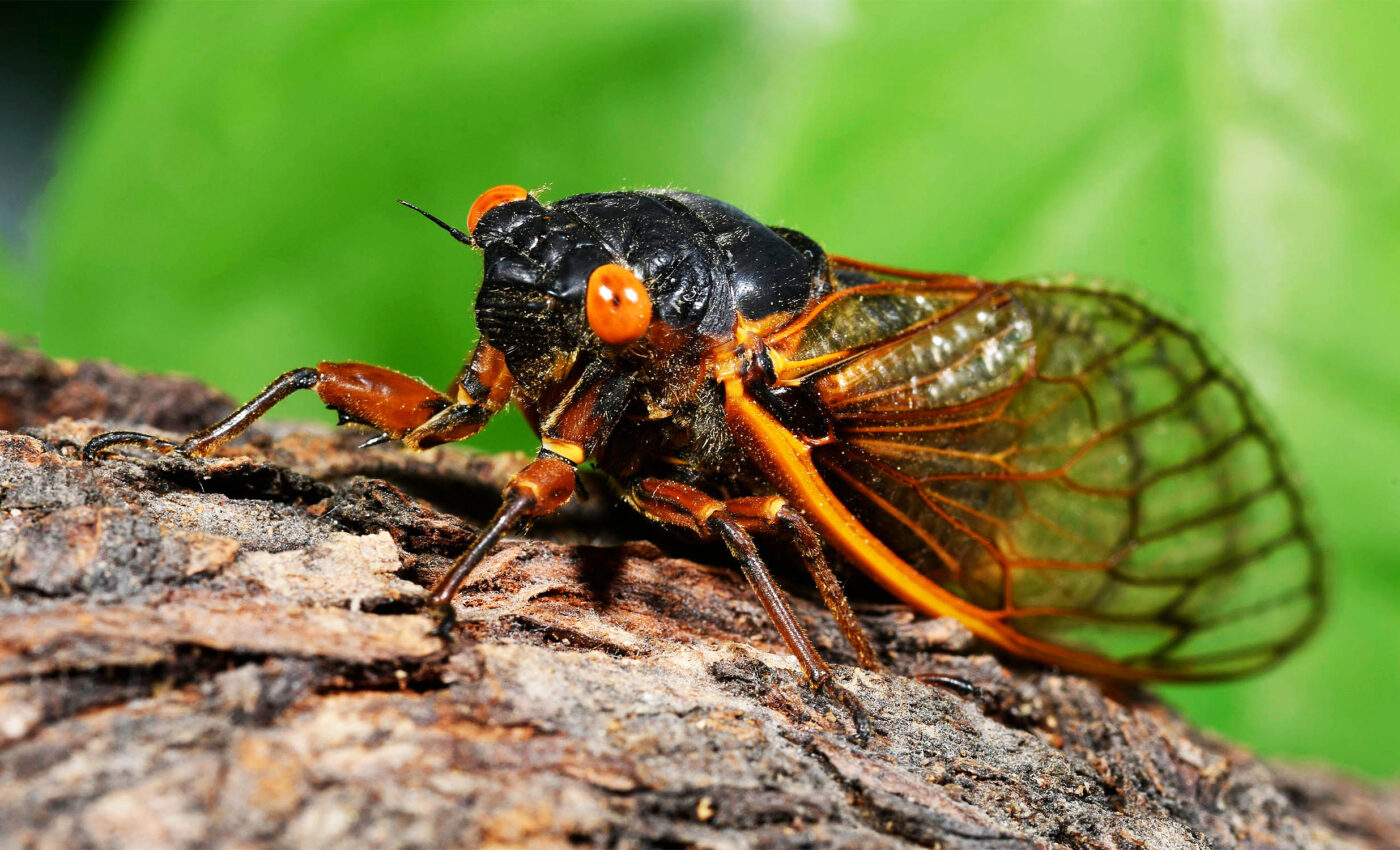
Cicadas' deafening noise can harm hearing and worsen tinnitus
Summer is just around the corner, and for many Illinois residents, that means the familiar drone of cicadas will soon fill the air. But this summer is unique. As we gear up for this extraordinary event, there’s one question buzzing in the minds of many: what does this mean for people with tinnitus?
Cicadas, hearing damage, and tinnitus
Cicadas are insects known for their distinct, rhythmic calls, which can be both a soothing soundtrack for some and an irritating noise for others.
But why are these insects so loud? And why is this year expected to be even louder than usual?
We are experiencing a rare convergence of cicada Broods XIII and XIX, who haven’t synchronized their schedules since 1803.
“We are all aware of the sounds of summer, with the sounds of cicadas being a distinctive part of that. But what we are talking about this summer is the 13-year and 17-year periodical cicadas, which far outnumber the annual cicadas in number and in sheer sound levels,” explains Fatima Husain, a professor of speech and hearing science at the University of Illinois Urbana-Champaign.
These periodical cicadas are expected to create a veritable wall of sound, reaching decibel levels comparable to a jet engine (90-110 decibels). That’s loud enough to cause concern for anyone’s hearing health.
Understanding tinnitus
Tinnitus is the perception of noise or ringing in the ears. A common problem, tinnitus affects about 15% to 20% of people.
Tinnitus isn’t a condition itself — it’s a symptom of an underlying condition, such as age-related hearing loss, ear injury, or a circulatory system disorder.
The phantom noise of tinnitus may vary in pitch from a low roar to a high squeal, and you may hear it in one or both ears.
In some cases, the sound can be so loud it interferes with your ability to concentrate or hear actual sound. Tinnitus may be present all the time, or it may come and go.
Tinnitus has various causes, such as exposure to loud noises, ear infections, and earwax buildup. Age-related hearing loss, certain medications, and conditions like Meniere’s disease can also contribute. Head or neck injuries and temporomandibular joint (TMJ) disorders are additional factors.
The impact of tinnitus can be profound. For some, it is a mild annoyance. For others, it causes severe distress, affecting concentration and sleep.
Moreover, the psychological effects, including anxiety, depression, and stress, can worsen the perception of the sound.
Cicadas can often ease tinnitus symptoms
In some cases, the loud, broad frequency sounds of the cicadas can have a masking effect on tinnitus, reducing or even eliminating the perceived ringing in the ears.
This effect was reported by many during previous cicada emergences in 2004 and 2021.
“In masking, what happens is that the external sound (the cicadas) is loud enough and of sufficient breadth of frequencies that it reduces all or some part of your tinnitus, such that the tinnitus becomes soft or inaudible,” says Husain.
However, this effect isn’t universal and depends on the specific type of tinnitus and the cicada species involved.
When cicadas worsen tinnitus and hearing
While some tinnitus sufferers might find relief in the cicada chorus, others may experience an exacerbation of their symptoms.
Additionally, individuals with hyperacusis, a condition characterized by heightened sensitivity to everyday sounds, might find the cicadas’ noise particularly bothersome.
“The loud sounds of the cicadas may also exacerbate tinnitus. So you need to check how the sounds make you feel,” Husain cautions.
Tips for a safe and enjoyable cicada summer
Whether you’re hoping for tinnitus relief or dreading the noise, it’s crucial to take steps to protect your ears this summer. Here are some tips:
- Limit exposure: The male cicadas produce their loudest sounds during the warmest parts of the day. If possible, stay indoors during peak hours.
- Use ear protection: If you need to be outside, consider wearing foam earplugs or earphones.
- Be mindful of your environment: The cicada calls are loudest near trees. If the noise is bothering you, move away from wooded areas.
- Seek air-conditioned comfort: The hotter the day, the louder the cicadas. Enjoy the cool indoors to escape the noise.
Remember, this is a temporary phenomenon. The cicadas will subside in about six weeks, leaving us to enjoy the rest of our summer in peace and quiet (until they return in another 13 or 17 years, that is).
If you experience any discomfort or worsening of your tinnitus or hyperacusis symptoms, consult a healthcare professional immediately.
As we anticipate the arrival of Brood XIII and XIX, let’s approach this unique event with curiosity, caution, and a healthy dose of respect for our noisy neighbors.
After all, their summer symphony is a reminder of the fascinating complexity and diversity of the natural world around us.
—–
Like what you read? Subscribe to our newsletter for engaging articles, exclusive content, and the latest updates.
Check us out on EarthSnap, a free app brought to you by Eric Ralls and Earth.com.
—–













